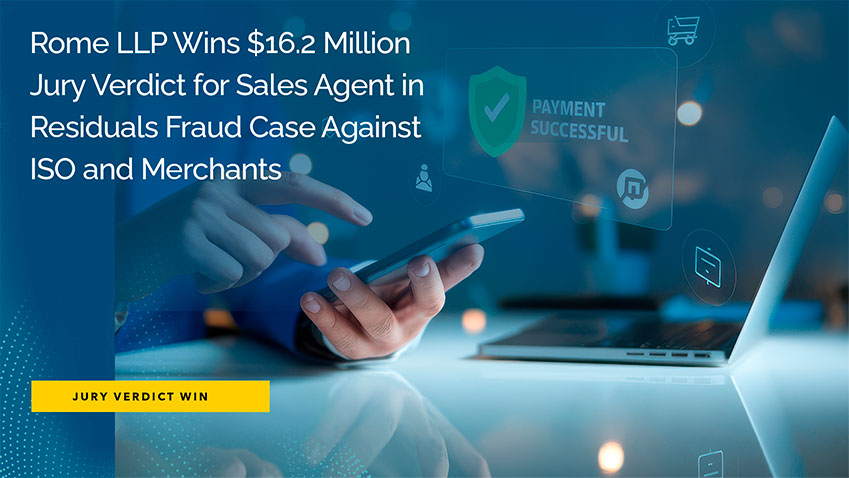Written by Eugene Rome, Founder and principal of Rome LLP | Intellectual property, Payment Processing, Domain Name Disputes, Business Litigation and Class Actions.
As cryptocurrency markets mature and digital assets become more integrated into mainstream finance, both investors and the platforms they rely on are increasingly vulnerable. Recent events, including the Coinbase data breach and a federal court’s decision in a case against Citibank, signal a shift in how courts may hold financial institutions accountable for failing to prevent scams and protect customer funds. For high-stakes crypto investors, these developments underscore the urgent need for proactive legal strategies to safeguard assets, recover losses, and hold negligent actors accountable in a fast-evolving regulatory environment.
Coinbase Data Breach Highlights Growing Risks for Crypto Investors
Coinbase, the largest U.S.-based cryptocurrency exchange, disclosed a targeted security breach involving sensitive customer data in a recent Securities and Exchange Commission (SEC) filing. The scammers bribed overseas employees for access to sensitive customer information, allegedly affecting less than 1% of Coinbase’s user base. This incident is one of many underscoring the vulnerability of digital asset platforms to insider threats and social engineering attacks.
More importantly, with Coinbase’s projected losses exceeding $400 million, it is a stark reminder of the exposure high-stakes investors face and the ongoing risks to the security of their digital assets. Victims often face unauthorized account access, account takeovers, and the theft of crypto holdings with losses in the tens or hundreds of thousands. For victims of increasingly sophisticated crypto scams, recovering losses is a difficult process involving complex legal and jurisdictional challenges, making experienced legal counsel critical to identifying recovery options and pursuing claims effectively.
Global crypto-related fraud losses exceeded $2 billion in 2024 alone, according to the Chainalysis 2025 Crypto Crime Report. As the industry continues to evolve and platforms like Coinbase grow in influence, investor protection and legal accountability must remain a central focus, both to safeguard individual assets and to maintain trust in the broader digital asset ecosystem.
How a federal court decision against Citibank may have a wider impact for entities like Coinbase and Binance
In a recent federal court decision out of the Southern District of New York, the court allowed key claims to move forward in The People of the State of New York v. Citibank, N.A. The case, brought by the New York Attorney General, alleges that Citibank failed to protect its customers from widespread fraudulent wire transfers, and that it violated both federal and state laws, including the Electronic Funds Transfer Act (EFTA). The case also raises broader concerns about how major financial institutions respond to sophisticated scams in an increasingly digital world.
At the center of the legal argument is whether the EFTA, a landmark consumer protection law intended to limit consumer losses, applies to consumer-initiated wire transfers. The court’s decision allows the lawsuit to proceed, potentially setting a precedent for how financial institutions must handle fraud claims related to wire transfers.
The EFTA is meant to incentivize financial institutions to deploy extensive safety measures, security protocols, and other guardrails to prevent scammers from infiltrating digital banking and engaging in unauthorized activity to steal consumer funds.
Some of Citibank’s alleged failures include:
- Inadequate security procedures
- Misleading consumers about their rights
- Depriving consumers of statutory safeguards
- Falsely promising consumers that their money is secure when it is not
- Tricking consumers into executing unnecessary affidavits
- Inflating the likelihood of recovery of stolen funds
Citibank’s lax security protocols and insufficient fraud detection allegedly enabled the unauthorized access to customer accounts. Once fraud occurred, Citibank allegedly delayed investigations by locking accounts and requiring notarized affidavits before taking action. Even when investigations were conducted, they were described as superficial, often lacking direct contact with customers and concluding with vague, standardized denial letters.
The EFTA decision involves potential liability for entities like Coinbase and Binance beyond simple negligence, including statutory remedies for affected individuals. Under EFTA, banks may bear statutory liability for unauthorized withdrawals, even in cases involving third-party fraud or social engineering. The outcome may reshape how financial institutions respond to scams involving wire transfers and clarify how far EFTA protections really go in the digital age.
At Rome LLP we are closely following this litigation, as the outcome may significantly expand the compliance and liability landscape for both banks and fintech firms.
There is a limited timeframe for consumers to report such incidents, and while banks may argue that they aren’t liable for third-party criminal acts, EFTA may impose liability regardless. Additionally, banks that repeatedly facilitate scam-related transactions, such as wiring funds under fraudulent investment schemes, could also face liability. The evolving legal landscape of the digital asset space is complex and warrants consulting with experienced legal counsel.
Holding your bank or exchange accountable for negligence
A core component we see in many fraud cases is the role of bank negligence or, as is the case with cryptocurrency, platform negligence (e.g. Coinbase and Binance) in enabling these social engineering scams. Consider this scenario: a scammer calls your crypto platform or, as was the case with Coinbase, persuades its staff to disclose your sensitive customer information such as date of birth, address history and your mother’s maiden name. Using this verified information, the scammer contacts you, convincingly impersonates your platform, alerts you to “suspicious activity” on your account, and offers to move funds to a “secure” wallet to safeguard your assets.
The result: you are defrauded. Though the fraud may be external, the platform’s failure to safeguard your personal information means they may bear liability for failing to protect your data in the first place. This type of institutional failure may support not only a negligence claim but also a claim under the EFTA in the right circumstance.
Coinbase breach fallout: why victims should act quickly to protect their rights and pursue recovery
While Coinbase has publicly acknowledged their ex-employees’ role in the most recent breach and offered reimbursements to affected users, the parameters by which they accept or reject claims will likely be artificially restrictive. High-stakes investors deserve full accountability and need to consult with legal counsel proactively. We are actively investigating claims on behalf of victims who have suffered losses following unauthorized access to their Coinbase accounts.
What are your legal options when facing crypto theft?
If you’ve suffered losses due to a crypto scam you may have legal avenues to recover your assets. At Rome LLP, we focus on representing individuals who have been scammed in the digital asset space in crypto disputes, fraud recovery and platform accountability. With experience in the distinct legal and technical challenges of cryptocurrency, we are uniquely prepared to pursue claims against bad actors and negligent platforms. We offer consultations to help you understand your rights and legal options, handling these matters on a contingency basis. We don’t collect a fee unless we successfully recover funds for you.
Our firm represents individual investors, businesses, and institutional clients in high-stakes matters involving cryptocurrency fraud and exchange-related misconduct. This includes:
● Losses arising from negligent data handling by crypto platforms
● Account takeovers linked to internal security leaks and SIM-swap attacks
● Crypto asset recovery through litigation, arbitration, and international enforcement strategies
● State and federal claims involving cybercrime, fraud, and breach of contract, including cross-border matters
We understand that in the decentralized world of digital assets, recovery efforts must be as sophisticated as the methods used to compromise accounts. Our team leverages legal tools including subpoenas, tracing experts, and court-ordered asset freezes to aggressively pursue wrongdoers and negligent financial institutions alike.
If you believe your Coinbase or other crypto exchange account has been compromised, especially in light of the recent SEC filing, you may have a legal claim for recovery. Contact me for a confidential consultation [email protected] to discuss your best legal recourse.
Contacts
Rome LLP
Eugene Rome, Esquire
[email protected]
(424) 544-3071
https://romellp.com/
Author: Eugene Rome represents aggrieved investors in cryptocurrency scams as well as disputes between parties to novel blockchain technologies, such as blockchain domains. Mr. Rome is currently representing a number of investors in various crypto and blockchain investments in matters pending in the United States, South Korea and Singapore. The firm’s crypto practice has appeared in a number of publications, most recently including Forbes magazine.









